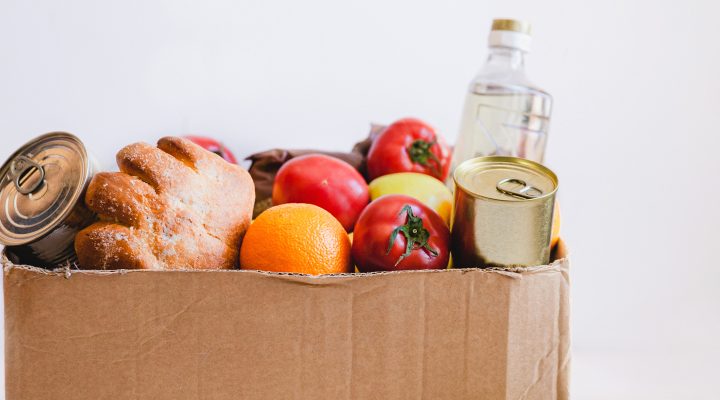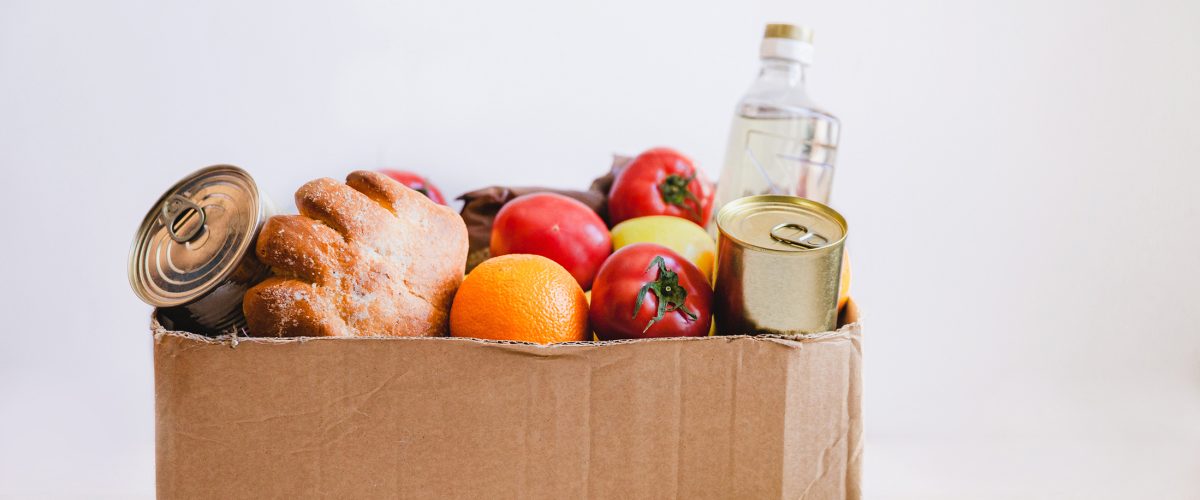The food we waste may fall out of our memory pretty quickly, but it doesn’t disappear.
The French fries you couldn’t finish at lunch, the leftover casserole from the church potluck, the moldy loaf of bread you forgot about, the milk that expired while you were on family vacation.
Or maybe you’re thinking about the pieces of chicken you cut off before cooking that perfect cutlet, the potato skins you peeled away to make mashed potatoes, the not-expired-but-not-so-attractive-looking veggies a chef discards while plating a gourmet meal.
Not only does that food miss out on an opportunity to nourish someone who is hungry, the discarded parts of it must go somewhere. And rather than the mouths of the hungry or the soil of a compost bin, that somewhere most often is a landfill, where tons of trash get piled up each day and slowly create harmful greenhouse gas emissions.
For Christians, this is not just a disappointing reality. Wasting this much food is antithetical to how the Bible talks about hunger and provision.
Aren’t we supposed to take only what we need and leave the rest (Exodus 16:4)? And when we do have extra, use it to feed our hungry neighbors (Matthew 15:32-38)? Shouldn’t we find joy in feeding those who have less than us (Matthew 25:35)?
“Wasting this much food is antithetical to how the Bible talks about hunger and provision.”
In a world with so much food waste, these aspirations are difficult to achieve. It’s hard for us to consider the complex systems of food production and imagine how our eating practices might honor the earth spaces our food comes from, while also making a nourishing plate for everyone at God’s table (which is everyone).
What do we need to know about food waste across the globe to help us respond to the issues it leads to?
The current food waste situation
The United Nations 2024 Food Waste Index Report found the United States ranks third in global food waste, with Americans wasting 24.7 million tons of food per year. Across the globe, our food systems waste 1.05 billion tons.
The study’s “conservative estimate” of the edible food that gets wasted? In individual terms, it’s at least 1.3 meals per person per day.
Despite this extreme amount of wasted food, which seems to imply an over-abundance of edible things, about 783 million global citizens are affected by hunger.
The big issue posed here is that because so much food gets wasted, many people go hungry because they don’t have access to it. But there is a plethora of further issues caused by food waste that impact our world, too.
Like the amount of greenhouse gas emissions that come from landfills stuffed with uneaten leftovers and expired food. Or the financial toll businesses and governments around the world take on when figuring out how to get rid of the food we don’t (or won’t) consume.
The issue of food waste, it seems, is infectious across various aspects of our lives.
In response to these problems, the Food Waste Index Report falls under a mission by the UN Environment Program to achieve a few of the 17 Sustainable Development Goals adopted by U.N. member states in 2015. The goals provide a “blueprint for peace and prosperity for people and the planet, now and into the future,” with all 17 aims naming ways in which global citizens need to proactively work to improve life on earth.
The main goal discussed in the report is goal 12 — Responsible Consumption and Production — which acknowledges how global systems of production contribute to the planetary crisis of climate change.
Target 12.3 of this goal names food waste as an important issue, but the U.N.’s report notes that food waste is also a relevant issue to some other goals such as zero hunger, sustainable cities and climate action.
In other words, the report explains, efforts to reduce food waste will help improve quality of life for global citizens in a variety of ways, socially, environmentally and economically. If nations across the globe reduce the amount of food they waste, we can:
- Increase food availability to those suffering from hunger or food insecurity by making food accessible and affordable to low-income communities.
- Reduce greenhouse gas emissions caused by the food production process, or trashed foods decomposing in landfills.
- Cut costs in food production and waste disposal, as well as government spending related to food insecurity.
In some nations, for example, these efforts have included offering surplus food supplies for marked-down prices at grocery stores or supermarkets. This gives low-income citizens an opportunity to access food while preventing waste and still bringing in monetary gain for businesses.
In communities, this also may look like finding ways for grocery stores or restaurants to donate food to nonprofits when it hasn’t been sold, or learning what foods are best to donate to places like homeless shelters and soup kitchens.
For individuals, this effort might include educating ourselves or our families on food management skills, such as how to shop with a reasonable budget, how to purchase the right amount of food for your household or how to properly prepare and store food so it doesn’t go bad before it is eaten.
And when eating the food in your house is just not possible, this can involve learning how to responsibly compost or dispose of food waste, discerning what inedible materials can be reused for other purposes (such as feeding livestock or tending land) and what can go in the landfill.
What does this look like for us?
Considering all the ways the U.N. encourages global citizens to reduce food waste, churches might ask how their distinct presence in our world can make a dent in these numbers. Individual Christians might wonder how their shopping, eating and sharing habits inform the ways they show hospitality to their neighbors and to the earth.
Perhaps we think of God as a gardener, reminding ourselves that God created us by first holding and nourishing the land (Genesis 2:7), then planting and tilling it so life could grow (Genesis 2:8). Perhaps we consider how God asked the first human to give attention to every animal (Genesis 2:19), and propagated from the first human the second, sharing nourishment so that both partners could live (Genesis 2:21-22).
When we remember the garden from which we received life, it can help us make better choices about what food we purchase, how much we eat, what we do with our surplus and how we remember the land that provided our meals in the first place. We might:
- Reconnect with our food sources and learn how food gets on our plate.
- Pay attention to the individual items we eat and thoughtfully choose what we serve ourselves.
- Share the nourishment we have access to with others who need it.
We might thank our Gardener for tilling the dirt, then do what we can to help more life grow.

Mallory Challis
Mallory Challis is a master of divinity student at Wake Forest University School of Divinity. She is a former Clemons Fellow with BNG.
Related articles:
Project 2025’s plan for mass deportations would make food prices soar
Post-COVID, U.S. poverty and hunger rates are soaring
There’s a spiritual side to food | Opinion by Mallory Challis


